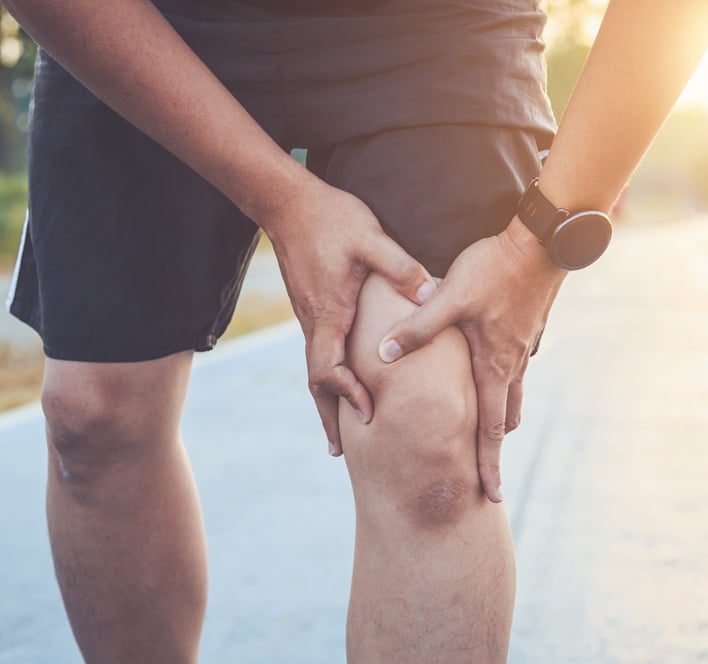Osteoarthritis can be a disruptive and painful condition that affects your daily activities. While no cure is available, there are ways to manage symptoms. Avoiding specific activities may help diminish pain and support your joints. It is essential to keep osteoarthritis from progressing, as there is no way to reverse joint damage.
Fortunately, there are various ways to manage osteoarthritis and get pain relief. At NJ Spine & Orthopedic, we can help assess your condition and develop a personalized treatment plan based on your symptoms and medical goals. With the guidance of our award-winning medical team, you can be informed on which activities are beneficial or damaging to your knee osteoarthritis. We offer state-of-the-art conservative and minimally invasive procedures to promote quicker recovery and reduced pain healing.
5 Activities to Avoid With Knee Osteoarthritis
There are five activities you should avoid to reduce the likelihood of joint damage and pain while living with knee osteoarthritis, including the following:
1. Running on Uneven Ground
Running or exercising on uneven surfaces can aggravate your knee osteoarthritis due to the unnatural twisting and turning of the knee joints. To avoid discomfort, you may opt to walk on a treadmill or track instead.
2. High-Impact Exercise
It may be in your best interest to avoid high-impact exercise as it can worsen knee osteoarthritis because it puts stress on weight-bearing joints. This may include exercises and recreational activities such as basketball, hockey, football, and soccer. If you enjoy these activities, speak with a medical specialist at NJ Spine & Orthopedic on ways to modify these sports to your condition.
3. Repetitive Motions
Repetitive motions can further damage your knee joints which may already be weakened by osteoarthritis. Activities may include work-related tasks, hobbies, or exercise. If repetitive motions are unavoidable, you may want to take frequent breaks and use good form to reduce joint damage.
4. Lifting Heavy Objects
Similar to high-impact exercise, lifting heavy objects can put unnecessary strain on your joints. If lifting is unavoidable, ensure you use a proper technique to reduce joint damage or ask someone for help to take some of the pressure off your joints.
5. Wearing Heels
If you have knee osteoarthritis, it is important to avoid wearing high heels as they stress your joints. If you enjoy wearing heels, opt for heels two inches or less or limit the amount of time spent in heels.
Best Activities for Knee Osteoarthritis
Although there are various activities you must avoid to reduce knee joint damage, there are activities that may help reduce or improve knee osteoarthritis symptoms, including the following:
- Walking
- Biking
- Swimming
- Water aerobics
- Yoga
- Tai Chi
We can help assess your condition and offer options that may diminish or eliminate knee osteoarthritis symptoms. Your daily routine can contribute to your knee osteoarthritis discomfort. By avoiding activities that aggravate the knee joint, you may be able to manage symptoms more effectively and slow down the progression with simple modifications.
Symptoms of Knee Osteoarthritis
The symptoms of osteoarthritis of the knee can vary but may include the following:
- Pain
- Stiffness
- Tenderness
- Grating sensation
- Bone spurs
- Swelling of the knee
- Loss of flexibility in the area
If you experience any of these symptoms, you may have knee osteoarthritis, and it might be necessary to seek medical attention and treatment. We encourage you to speak with a surgeon or doctor about your symptoms as soon as possible and ask whether or not you might have osteoarthritis in the knee. A surgeon can help you find the best possible treatment for your lifestyle and needs.
Potential Treatment Options for Knee Osteoarthritis
There are many potential treatment options for knee osteoarthritis, including medication, therapies, and certain surgeries. Most medications will be used to help manage pain related to osteoarthritis symptoms. Acetaminophen, commonly found in Tylenol and other over-the-counter pain pills, can help with mild or moderate pain. NSAIDs, often in Advil, can also be used to address pain. Duloxetine, brand-named Cymbalta, is often used to treat depression, but it can also be used to treat chronic pain.
Different therapies, including physical, occupational, and TENS, can all be used to treat your knee osteoarthritis. TENS uses electrical stimulation in your nerves to reduce pain, occupational therapy can help you avoid putting further stress on the impacted areas, and physical therapy can help you strengthen the muscles, increase flexibility, and reduce pain.
There are also several surgeries you can utilize to treat your osteoarthritis, including certain injections, bone realignment, and joint replacement. The injections can help reduce pain and increase cushion in the affected areas, depending on what your surgeon thinks is best for your circumstances. Bone realignment or joint replacement may be used in more severe cases where more serious action needs to be taken.
Your NJ Spine & Orthopedic surgeon will likely recommend a less invasive procedure before taking more invasive action, depending on your needs. This is because minimally invasive procedures are more likely to heal well and have a positive effect on your overall well-being. For more information about your options, we recommend you work with a surgeon and your doctor to determine what is best for you.
Schedule an Appointment With NJ Spine & Orthopedic Today
If you suffer from knee osteoarthritis, the board-certified medical team at NJ Spine & Orthopedic is here to help you. With state-of-the-art equipment and research, we can carefully assess your condition and offer the most appropriate treatment options for you, including modifying and managing daily activities that may impact your condition. We offer both conservative and surgical options to relieve knee pain and restore function to the knee joints.
Schedule an appointment with a knee osteoarthritis specialist at NJ Spine & Orthopedic by calling (866) 553-0612 or filling out our contact form.

